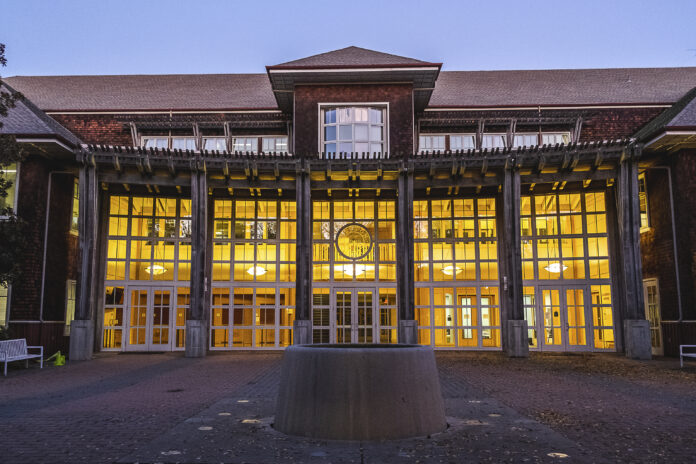Number of total units enrolled across all students jumps by 27.9%
Summer Sessions, split up into Session 1, Session 2 and Special Sessions, will be delivered remotely this year. Despite this, enrollment is still up from last year by over 30%.
The number of unique students enrolled in any summer session was 12,649 as of May 21. Enrollment in general, accounting for student enrollment across multiple sessions, is 19,161.
“We’re up about 30% over last year’s enrollment at this same time,” said Danica Fisher, the director of Summer Sessions.
Similarly, the student-credit hours number, which indicates how many units are being enrolled in total, is 123,604 units as of May 21. This is a 27.9% increase over last year’s student-credit hours number at this time.
“I think that this remote model, in particular because some courses may be offered asynchronous[ly], means that students can take Summer Session courses in some cases at any time, anywhere,” Fisher said.
According to their mission statement, Summer Sessions “offer and promote UC Davis quality courses during the summer to support [their] students’ successful advancement toward timely graduation.”
The 2020 Summer Session course fees are $297 per unit for UC undergraduate and graduate students and UC career staff and $349 for a non-UC Student, according to the Summer Sessions website.
Session 1 will take place from June 22 to July 31; Session 2 will take place from Aug. 3 to Sept. 11 and the Special Session will take place from June 15 to Sept. 11.
“I think that it opens up summer for a lot of students who might not have been able to do [Summer Sessions] in the past,” Fisher said. “They’re probably a lot of students who had other plans for the summer, and those plans are falling through. They may have planned to study abroad or travel abroad or they may have planned to work or do an internship. It might be that the reality of those experiences just aren’t the same because of COVID-19.”
Because of the unique chance to offer so many classes remotely, more offerings may be available this year.
“Summer Sessions has made a recommendation to the associate deans of the undergraduate colleges on campus that they consider, in cases where courses may be impacted or might be in high demand, that more sections may be added for the summer,” Fisher said.
For instance, “because of the large amount of students on the waitlist for the summer,” two additional sections of BIS 2B — Introduction to Biology: Principles of Ecology and Evolution for Summer Session 2 was added, according to an email sent on May 19 by Meghan Munn, a BIS 2B staff member.
“This is an opportunity for students to either get on track or get ahead,” Fisher said. “One of the campus goals is to decrease time to degree for students and also to ensure that students can actually finish from the university.”
Students also have access to academic advising and tutoring centers over summer, Fisher said. Fisher also said she encourages students to pace themselves and to be realistic about their ability to handle the pace of summer sessions, as the time is condensed.
“This summer they’ve got a very full menu of offerings that they’re going to provide students online,” Fisher said. “There will be individual tutoring, group sessions and workshops. It might be a great time for even students who aren’t enrolled in summer sessions to review some of the workshops, as a way to think about what instruction might look like in the fall, [and] help to work through some of the challenges that may be inherent in this new virtual context.”
Instructors teaching this summer are planning their courses while keeping in mind that remote learning will continue throughout all summer sessions.
“In the midst of what’s going on in the world, I think that the university has committed to making sure that offerings are available in this way, and that instructors are developing courses on platforms that they may have not used before,” Fisher said. “It’s a time to leverage some of the special technologies and training that are available to faculty, staff and to students to think about how we can better serve students in the future.”
Written by: Aarya Gupta — campus@theaggie.org



